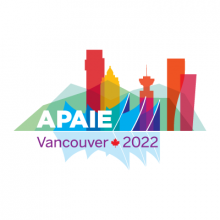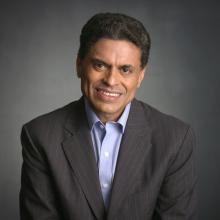Brave New Realities for Higher Education in the Asia Pacific
Vancouver had been set to host the first APAIE conference in the Americas in 2020, with a timely theme of “Bridging the Oceans.” The city is a fitting conference destination as a hub for international students, and many elements of what was planned to be explored there in 2020 maintain their relevance: the Pacific Century; shifting tides of geopolitics; newly empowered voices and communities; accelerated and changing patterns of human movement and migration; disrupted employment models; environmental change; evolving dynamics and models of faculty and student mobility; new cultures of learning and teaching; and radically new and diverse generations of learners.
Still, much has changed in the international education field. Some anticipated conversations may have diminished or grown in urgency, while other new conversations now demand our attention. Seismic shifts have altered our landscapes and horizons. These include renewed attention to catastrophic climate change; pandemic recovery; a new spotlight on resilience; surging mental health and addiction issues; populism with privilege and systemic racism laid bare; the currency of alternative truth and misinformation; the intrusion, enabling, and weaponization of technology; the radical fracturing of how we interact, work, and study; and paradigmatic shifts in how nations and societies define progress.
All of these issues highlight the importance of the values found in international education, but also the inherent gaps, inequities, and short-termism in many of the systems we design, operate, and inhabit as international educators. There have been coincidental calls to change, decolonize, defund, and replace; to silence, cancel, and disrupt; as well as to pivot, transition, rebuild, and reimagine. History has shown that choices made or ignored during crises have consequence—and have the ability to shape the world for decades to come.
Equity, diversity, and inclusion have leapt to the fore of our agenda. Climate change must be addressed. Through the disruptive migration of content and conversation online, geography has become almost irrelevant. International education has put on hiatus much of its proposition, and it may need a new and sustainable model. It has been a difficult time and a disruptive one, but spring follows winter. Things that were hidden are revealed. We are able see the world and the sector of international education from a new vantage.
What a great opportunity to take a step back and view things from the other side of the Pacific. The Vancouver conference will offer one of the first opportunities for the global international education sector to meet again and to explore the “Brave New Realities for Higher Education in the Asia Pacific.”
More details:
Conference keynote: Fareed Zakaria on managing the new global disorder
“The world we have known and been comfortable with for decades is being disrupted—by broad forces like pandemics [and] climate change, but also shifting power dynamics and the rise of populism and nationalism. The postpandemic world will be fundamentally different from the one before. All of this means navigating this new era will be complex, especially if the goal is to preserve core values such as freedom and individualism. How do we do that? How, especially, does the modern university do that?” —Fareed Zakaria
About International Educator
International Educator is NAFSA’s flagship publication and has been published continually since 1990. As a record of the association and the field of international education, IE includes articles on a variety of topics, trends, and issues facing NAFSA members and their work.
From in-depth features to interviews with thought leaders and columns tailored to NAFSA’s knowledge communities, IE provides must-read context and analysis to those working around the globe to advance international education and exchange.
About NAFSA
NAFSA: Association of International Educators is the world's largest nonprofit association dedicated to international education and exchange. NAFSA serves the needs of more than 10,000 members and international educators worldwide at more than 3,500 institutions, in over 150 countries.
NAFSA membership provides you with unmatched access to best-in-class programs, critical updates, and resources to professionalize your practice. Members gain unrivaled opportunities to partner with experienced international education leaders.













